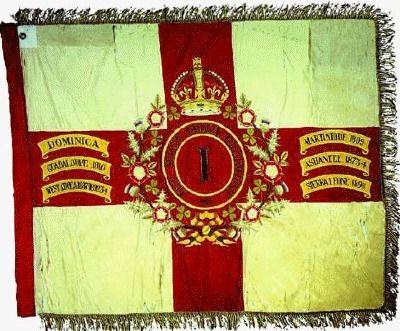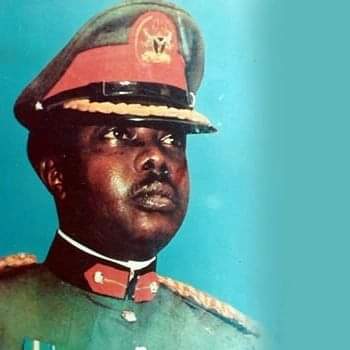On this day 1892(estimated):
The Union Jack was raised in Ijebu Ode after the battle of Imagbon during which the British troops wreaked havoc on the Ijebu infantry with a machine gun capable of firing 2000 rounds in 3 minutes in what is now known as British-Ijebu war.
In 1891, during the colonial era, the Ijebu Kingdom under the leadership of the Awujale closed down Ejirin market, blocked the trade route to Lagos and imposed custom dues on traders. This impacted negatively on the revenue of the crown colony.
The British government repeatedly appealed to the Awujale to open the route to no avail. In May 1891, a British acting governor, Captain C.M Denton escorted by Hausa constables went to persuade the Awujale with gifts which he still rejected.
However, after much pressure, but to the dissatisfaction of his subjects the Awujale agreed and a deal was reached allowing the free passage of goods to Lagos. The Awujale was to receive £500 annually as compensation for the loss of customs revenue.
But the agreement was breached when a white missionary was denied access through the kingdom. Infuriated by this action, the British govt authorized the use of force on the kingdom and gathered troops from Ghana, Sierra Leone, Lagos and Ibadan.
On the 12th of May, 1892, under the command of Colonel F.C. Scot, 450 men (including 150 Hausa troops) plus 340 carriers, sailed up the Lagos Lagoon via a flotilla of canoes and vessels. They landed at Lekki/Ekpe where another 186 men joined them.
But the British underestimated the fighting prowess of the Ijebu infantry that had over 8000 men armed with old rifles. The British troops met strong resistance, and though they succeeded in razing down 4 villages, many of their men sustained fatal injuries.
However, the Ijebus started losing as the battle progressed but remained determined to prevent the British army from crossing the sacred Yemoji river. The river goddess was said to have taken human sacrifice in order to prevent the British from crossing.
The river was then dug deeper to make it impenetrable. The Hausa troops initially refused to cross having heard the legend of the river goddess. However, Major George Colquhoun Madden of the West Indian Regiment mounted a machine gun laden canoe and successfully crossed the river.
Having observed that the goddess did nothing, the Hausa troops also crossed and the British army unleashed havoc on the Ijebus burning several villages. They camped before Imagbon the next day. By then they had lost 56 men including 3 white officers (among them Captain Roderick Owen) and 30 more wounded.
Although the Ijebu had lost around 7–900 warriors thousands remained at large and ready to fight. However, as Scot prepared to march on the next morning emissaries arrived offering the Awujale’s terms of surrender. The Kingdom had fallen to superior firepower.
Scot warned his men against pillaging but the Ibadan irregulars flouted the order and were disarmed. The toll gates in Oru built by the Ijebus and some shrines were destroyed. Ijebu kingdom was later annexed to the colony of southern Nigeria












